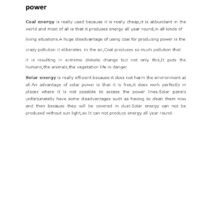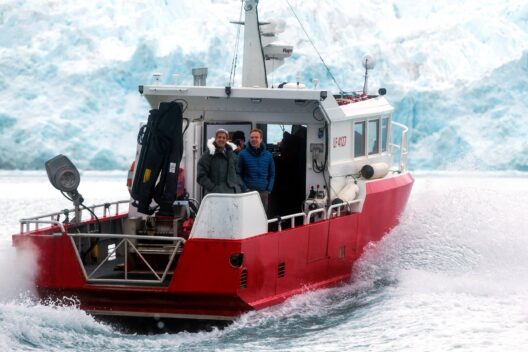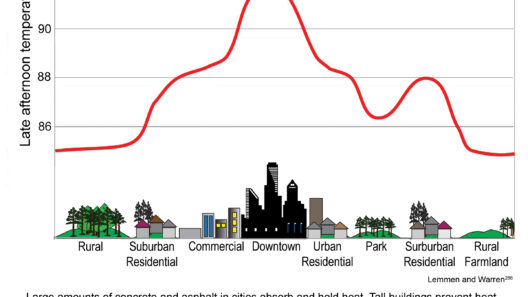When pondering the intricate dynamics of climate change, one might ask: If CO2 is often referred to as the poster child of greenhouse gases, could it be that a lesser-known contender—methane—actually earns the faster track on the global warming express? This notion opens the door to a multifaceted discussion on the comparative effects of methane and carbon dioxide (CO2) on our planet’s temperature trajectory.
The greenhouse effect is a natural phenomenon that warms the Earth’s surface. Human activities, particularly the burning of fossil fuels and agricultural practices, have exacerbated this effect, particularly through the emissions of greenhouse gases such as methane and CO2. Although both gases trap heat in the atmosphere, their potency and longevity exhibit striking differences that warrant examination.
Methane (CH4), while constituting a smaller portion of the atmosphere compared to CO2, is notoriously more effective at trapping heat. Over a 20-year period, methane has a global warming potential (GWP) that is approximately 84-87 times greater than CO2. This remarkable efficiency at trapping heat means that in the short term, methane can intensify global warming at a much quicker pace than CO2. However, methane’s atmospheric lifespan is notably shorter—averaging around a decade before it is broken down by sunlight and chemical reactions, ultimately transforming into CO2.
In contrast, carbon dioxide is the more infamous greenhouse gas in terms of volume. Released in significant quantities through fossil fuel combustion, deforestation, and industrial processes, CO2 can persist in the atmosphere for hundreds to thousands of years. This durability means that while methane may warm the planet more rapidly, CO2 plays the long game, contributing to sustained climate changes over centuries.
To illustrate the challenge posed by methane, consider the various sources of its emissions. Agriculture, particularly through livestock digestion and manure management, is a prominent contributor. Landfills also emit methane as organic waste decomposes anaerobically, emphasizing the need for more effective waste management strategies. Furthermore, methane leaks from natural gas infrastructure—such as wells, pipelines, and storage facilities—add to the atmospheric burden, underscoring the critical need for vigilance in the fossil fuel sector.
The implications of this dynamic are profound. If we were to hypothetically reduce methane emissions rapidly while leaving CO2 levels untouched, we might witness a notable short-term reduction in the rate of global warming. This possibility presents an enticing challenge for policymakers and climate activists alike: Could we, through concerted efforts to diminish methane emissions, create a more immediate impact on the climate crisis? The urgency of addressing this question underscores the need for targeted strategies.
In addressing methane emissions, technological advancements hold promise. Solutions such as improved agricultural practices, anaerobic digesters for livestock waste, and effective landfill management can significantly curb methane release. Additionally, increasing attention must focus on the oil and gas industries, where leak detection technologies and updated infrastructure can mitigate methane emissions during extraction and distribution.
Moreover, international cooperation and policy implementation can amplify these efforts. Initiatives like the Global Methane Pledge, convened in late 2021, aim to reduce global methane emissions by 30% by 2030 compared to 2020 levels. Such commitments highlight a collective acknowledgment that tackling climate change requires a multipronged approach, balancing the urgent need to address short-lived pollutants like methane with the long-term strategies needed for managing enduring emissions like CO2.
Despite the significant strides that can be made in mitigating methane, it is crucial to recognize the interconnectedness of all greenhouse gases. Addressing methane does not preclude the necessity for reducing CO2 emissions. This realization beckons a dual-strategy approach that emphasizes the importance of reducing both gases. After all, while methane may hold the title for rapid warming, CO2’s long-lasting presence means that a comprehensive climate strategy must account for both the immediate and enduring challenges of greenhouse gases.
In conclusion, the dance of methane and CO2 in the arena of global warming offers a fascinating lens through which to examine climate change. Methane warms the planet faster, but its relative short lifespan necessitates urgent action to capitalize on its potential for rapid change. By prioritizing a decrease in methane emissions alongside ongoing efforts to curtail CO2, humankind can strive for a balanced and effective climate strategy. So, the challenge remains: can we collectively harness this knowledge to curtail methane emissions, and in doing so, achieve a more immediate reduction in the trajectory of global warming? The path forward lies with innovation, policy, and shared responsibility across all sectors of society.








